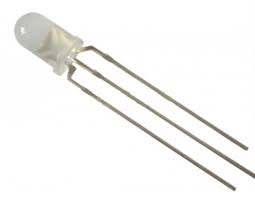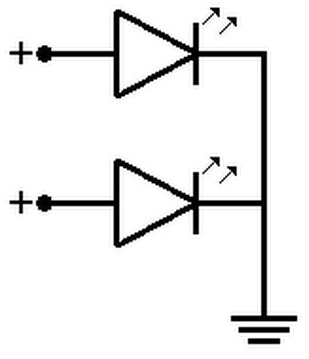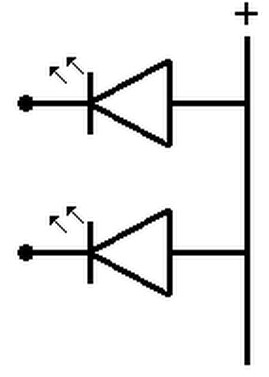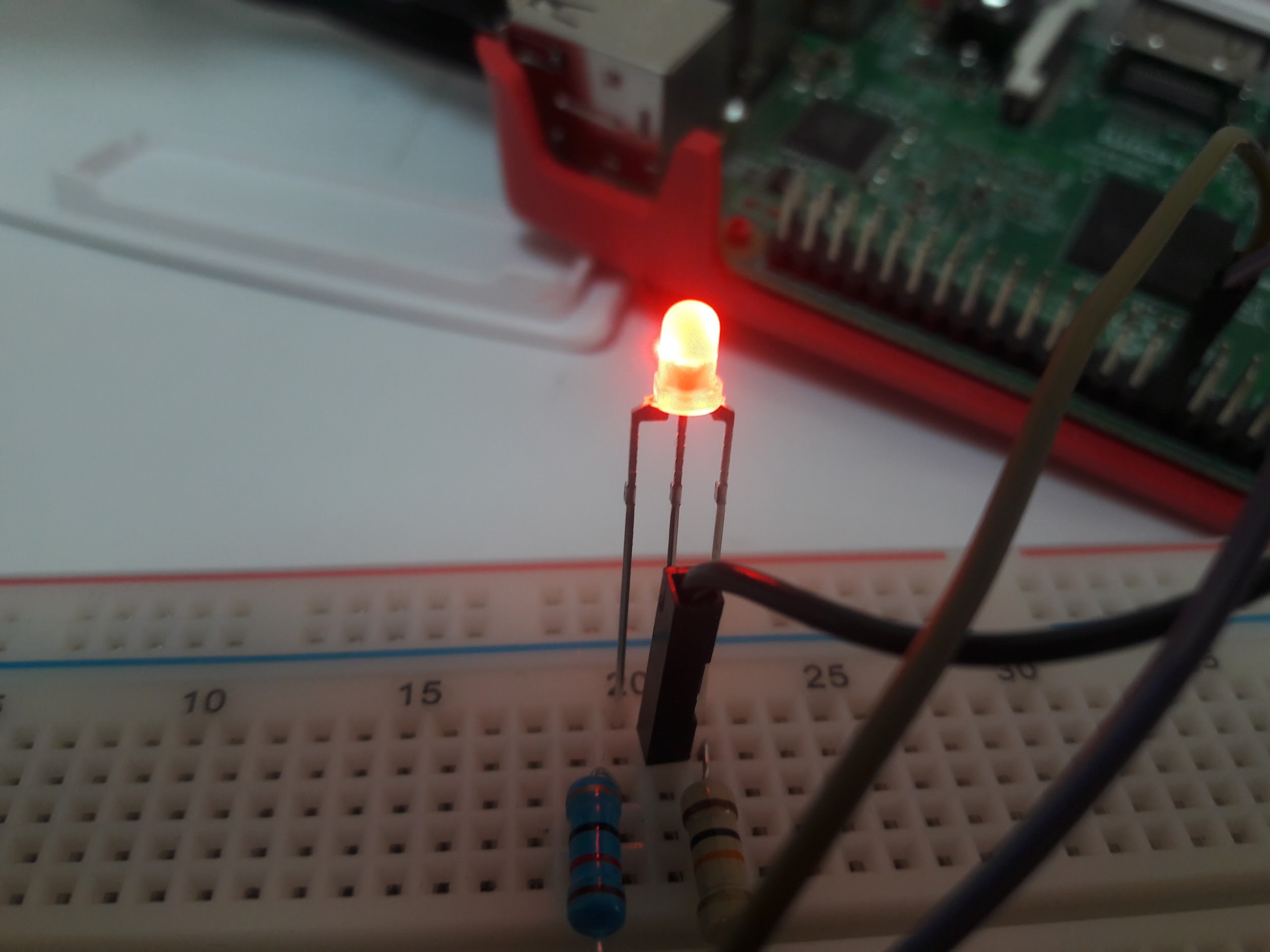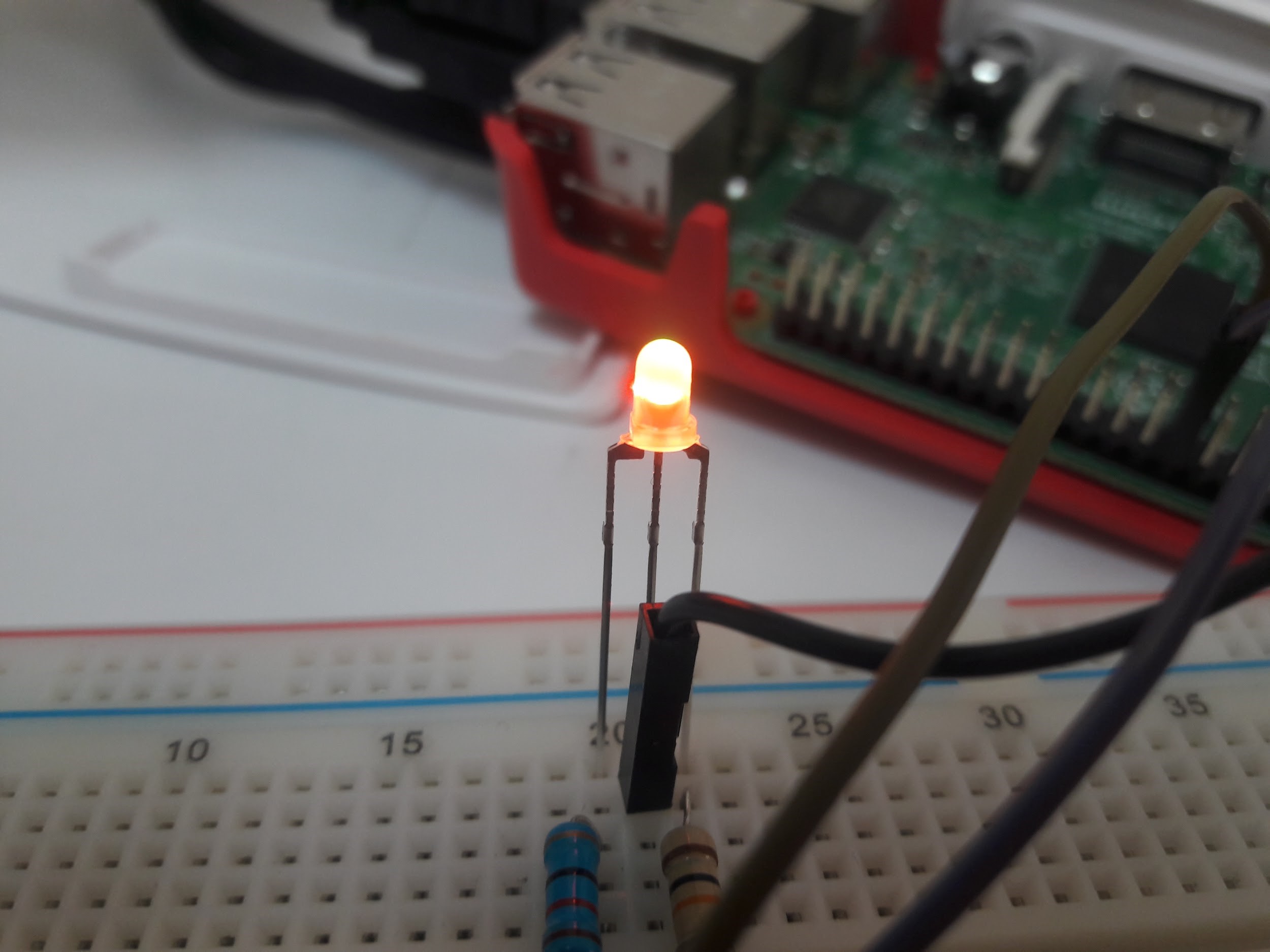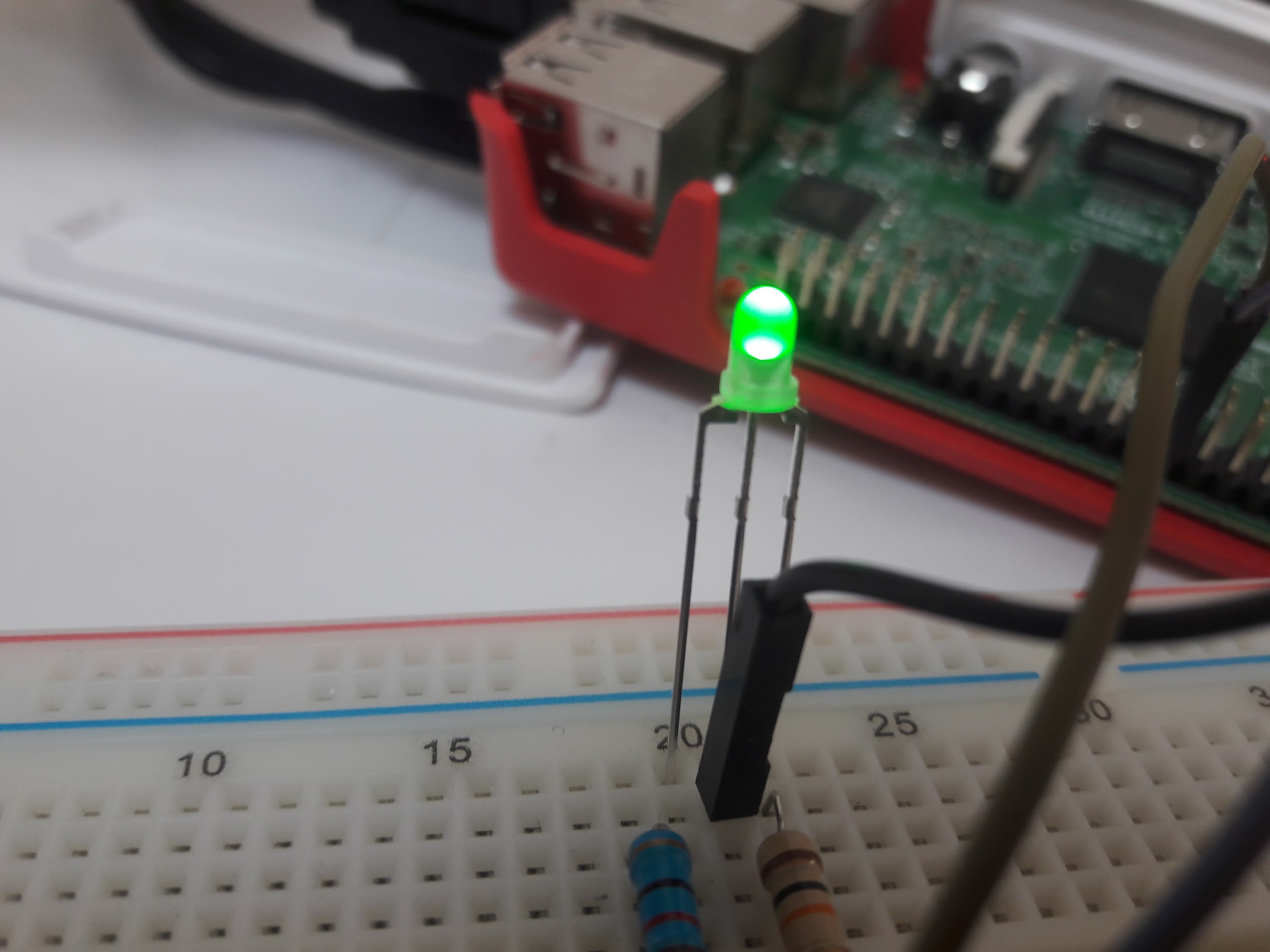1. Dual Color LED¶
A dual color LED is composed of two LEDs each emitting a different color of light. Two types of dual color LEDs can be found: common anode and common cathode.
As a reminder on LEDs, to turn a normal LED on, the anode (longer leg) is linked to the VCC and the cathode (shorter leg) is linked to the ground.
In the case of a dual color LED, the internal LEDs share their anode or cathode through one pin: the middle pin. So the wiring depends on whether it’s a common anode or common cathode.
Below are the internal connections of a common anode and of a common cathode dual color LED to understand better the placement of the colored LEDs:
Common Cathode:
Common Anode:
In this example, we will be using a common anode composed of a green and a red LED.
1.1. Circuit Connection¶
As we mentioned previously, this is a common anode dual color LED. So to light both the green and the red internal LEDs, connect:
- The middle pin to 3.3V
- The right and left pin to a ground
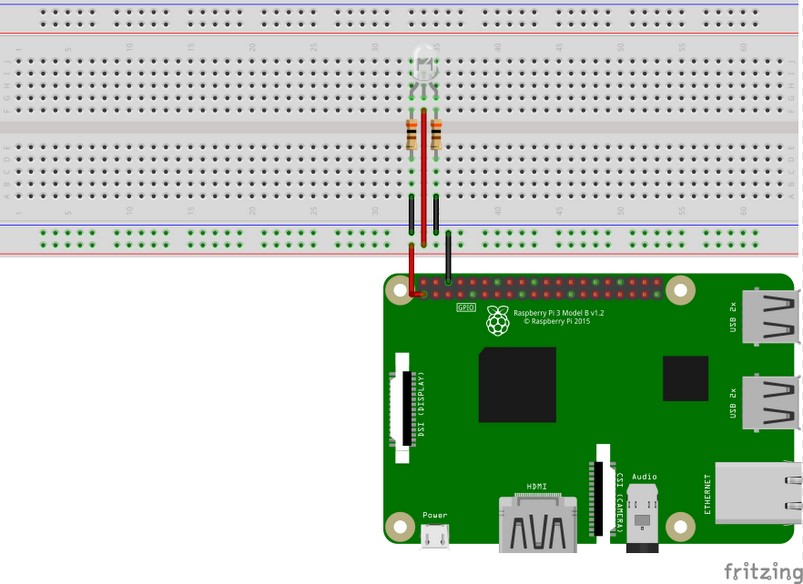
However in this example, we want to control the intensity and the color of our LED, so connect:
- The middle pin to 3.3V (pin 1)
- The right pin to a GPIO (pin 11)
- The left pin to a GPIO (pin 12)
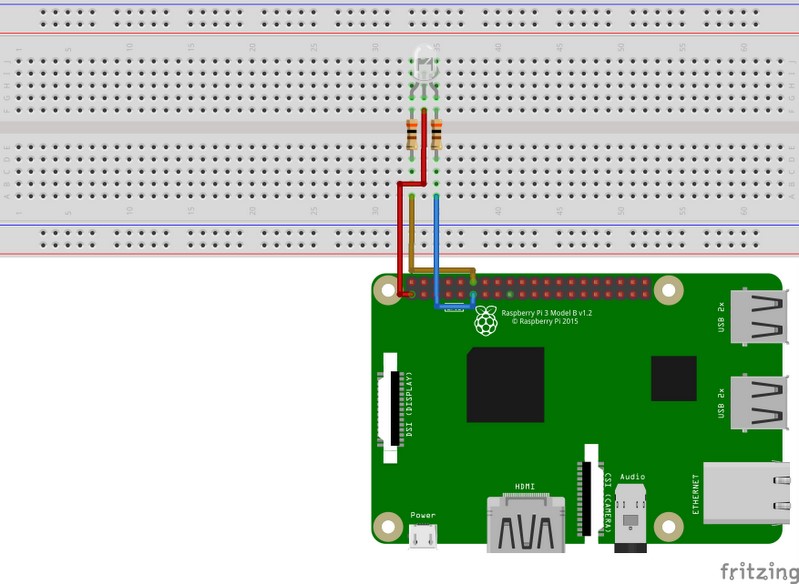
1.2. Python program to change the color of the LED¶
After saving the code, you can run it by clicking on Run (or CTRL+F5).
You will then see the LED transition between multiple stages.
Here are three stages of the LED:
i=0 - Internal red LED on
i=50 - Internal red and green LEDs equally on
i=100 - Internal green LED on
